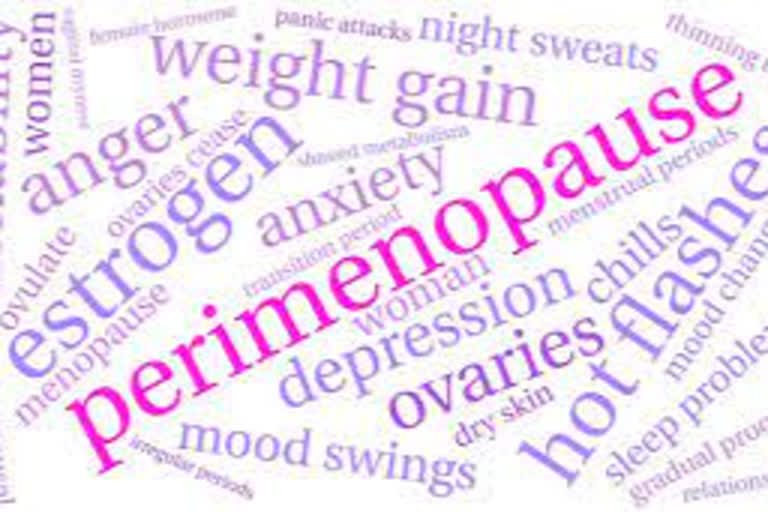Hyderabad: Menopause means the cessation of menstruation and begins in women between the ages of 45 to 50 it is a normal process, which happens in every woman. However, many changes occur in a woman's body during menopause. Some women experience many physical problems such as heart problems, mood swings, irritability, skin problems, hair loss, and others.
If a woman does not menstruate continuously for 12 months, it means she has reached the menopausal stage. However, you reach Perimenopause before menopause. World Perimenopause Day is being observed on October 11th in the year 2022, in order to spread awareness about this lesser-known condition in women. You can recognize perimenopause by some of the symptoms. Symptoms of menopause include irregular menstrual flow, hot flashes, insomnia, etc., which can vary from woman to woman. In some cases, the symptoms can be very severe. Therefore, it is important to know what perimenopause is and what its symptoms are.
Also read: Anxiety during pregnancy may lead to premature births: Study
According to a report published in a research journal, Perimenopause means around menopause. During this time, your body is approaching Menopause. This is followed by the end of a woman's reproductive years. Perimenopause is also called Menopausal transition. It can be different for every woman. Some women start to experience perimenopausal symptoms as soon as they reach the age of 40. This includes mainly irregular menstrual flow. However, it can occur in some women in their early 30s. During perimenopause, you may experience:
- Levels of the female sex hormone estrogen begin to rise and fall unevenly.
- Menstrual cycles can be longer or shorter.
- The menstrual cycle begins, but the ovaries do not release eggs during this period.
- Women may experience menopausal symptoms such as irregular periods, hot flashes, vaginal dryness, and trouble in sleeping.
- Problems with the vagina and bladder may occur.
- Fertility and libido may decrease.
- Fluctuations in cholesterol levels.
- Symptoms such as mood swings may occur.
The average perimenopausal period usually lasts for four years. In some cases, it lasts for only two months, after which it can cause problems for a woman for up to 10 years. If a woman does not have her menstrual flow for 12 months, she is said to have reached menopause and her perimenopausal period is over.
To manage Perimenopausal Symptoms, women should eat healthy food, include exercise in their daily routine, get proper sleep, avoid drinking alcohol or smoking, keep their weight under control, and avoid taking stress.



